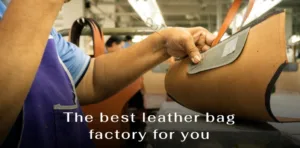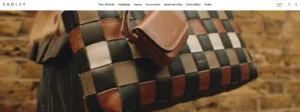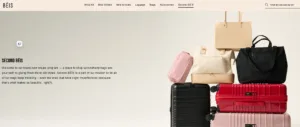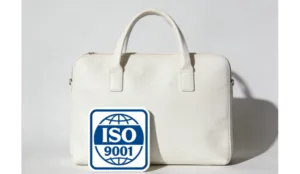Where are Michael Kors bags manufactured? You might assume these stylish bags come from just one country—but in reality, Michael Kors has built a global manufacturing network that spans several regions, including some unexpected locations. Let’s take a closer look at where and how these bags are actually made.
China: Michael Kors Bag’s Strategic Shift in Production and Retail

China remains a vital part of Michael Kors’ global supply chain, particularly in the leather goods category. According to 2024 supply chain data, approximately 45% of the brand’s handbag production is concentrated in Guangzhou and the Pearl River Delta region. This area is often referred to as the “leather capital of China,” boasting a well-developed and highly integrated manufacturing ecosystem. From leather tanning, material cutting, stitching, and assembly to customized hardware production, the entire manufacturing process can be completed locally—enhancing lead time efficiency and reducing overall production costs.
The region is home to a large number of seasoned OEM and ODM bag manufacturers. Among the key partners is Times Industrial Group Holdings Limited, a leading large-scale supplier specializing in premium handbags. These factories offer robust mass production capacity and rigorous quality control systems, enabling them to produce well over one million units annually. Many of them have adopted smart manufacturing systems and lean production methods, significantly improving automation and operational efficiency.
Moreover, the Pearl River Delta’s advanced logistics infrastructure and proximity to major ports support rapid global distribution. By closely collaborating with local manufacturers, Michael Kors benefits from a highly responsive and scalable supply chain that balances cost-efficiency with product quality. This setup also facilitates tighter integration between product development and market timing, giving the brand greater agility in a competitive fashion landscape.
To adapt to the evolving Chinese consumer market, Michael Kors has optimized the synergy between its manufacturing and retail strategies:
Retail Channel Realignment: The brand has gradually phased out some flagship stores in top-tier cities, shifting its focus to outlet malls and exclusive e-commerce offerings. This approach improves inventory turnover while expanding access to broader consumer segments.
Localized Product Strategy: Michael Kors has strengthened its “China-exclusive” collections, including seasonal designs such as zodiac-themed handbags. These items are produced via dedicated manufacturing lines in Dongguan, enabling faster turnaround and deeper cultural resonance.
Sustainable Material Collaboration: The brand has partnered with local suppliers like Sunteam to co-develop lightweight, eco-friendly materials such as recycled nylon and vegan leather. These efforts align with China’s dual carbon goals and cater to the rising demand for sustainable fashion among younger consumers.
Vietnam: With Advanced Bag Manufacturing Process

In terms of manufacturing expertise, Vietnam excels in handbag production through several specialized capabilities that ensure superior quality and scalability. First, the factories possess advanced multi-layer leather cutting techniques, capable of precisely handling high-end materials such as calfskin and Saffiano embossed leather, complemented by German-imported sewing machines that guarantee seam accuracy within 3mm. Second, an innovative hardware embedding process ensures that zippers, locks, and other metal fittings integrate seamlessly with the bag bodies, significantly enhancing overall craftsmanship. Additionally, the production base supports large-scale manufacturing, with individual assembly lines producing 800 to 1,000 standard tote bags daily and equipped with X-ray quality inspection lines capable of detecting even millimeter-level stitching defects to ensure consistent product quality. Importantly, the Vietnamese facilities actively incorporate cutting-edge technologies such as 3D prototyping, intelligent cutting tables, and waterproof nano-coating treatments. These innovations not only reduce product development cycles but also improve material utilization rates to 92% and extend bag longevity by more than 30%. Thanks to these professional manufacturing advantages, Vietnam stands as the ideal production base for Michael Kors’ mid-to-high-end handbag collections, helping the brand maintain strong competitiveness in the global market.
India: Bulk Bag Orders

Due to India’s mature manufacturing capabilities and comparatively lower production costs, Michael Kors has established handbag production facilities in the region, focusing primarily on handling bulk bag orders to meet the rapidly growing local and regional market demands. The factories combine India’s rich craftsmanship traditions with modern production technologies to ensure an optimal balance between quality and cost.
Amid the rapid growth of the Indian luxury market, Michael Kors has optimized its production layout and enhanced capacity and supply chain efficiency to support expansion within both domestic and regional markets. Additionally, its 2,106-square-foot flagship store at Palladium Mall serves as a vital market touchpoint, facilitating effective integration between manufacturing and retail. To provide a comprehensive overview of Michael Kors’ supply chain in India, the table below summarizes the number of suppliers, their activity status, and the export contributions of the top suppliers.
| Category | Details |
|---|---|
| Total Suppliers and Buyers | 39 suppliers exporting to Michael Kors in India, to 85 global buyers. |
| Active Suppliers | 27 suppliers active from March 2023 to February 2024. |
| Top Supplier | FOSSIL INDIA PVT LTD managed 52% of the total exports with 120 shipments. |
| Second Supplier | CWF CHILDREN WORLDWIDE FASHION accounts for 27% of shipments, totaling 63. |
| Third Supplier | FOSSIL INDIA PRIVATE LIMITED contributed 7% with 17 shipments. |
| Total Contribution of Top 3 Suppliers | Together, these three suppliers make up 87% of all Michael Kors exports from India. |
Overall, India serves as a crucial bag manufacturer hub for Michael Kors, leveraging its cost advantages and craftsmanship expertise to become a key strategic point for the brand’s regional market expansion and diverse demand fulfillment.
Thailand: Mass Production of Bags at Lower Cost


Michael Kors produces a select range of high-end bags in its Italy bag office, particularly within the Michael Kors Collection. These exclusive items are handcrafted in small, family-run workshops nestled along the cobblestone streets of Florence, where generations of artisans have preserved traditional leatherworking techniques. Each piece reflects the unmatched heritage and precision of Italian bag craftsmanship, transforming fine materials into timeless luxury.
Among these, crocodile-embossed leather bags undergo 12 individual quality control stages, ensuring exceptional standards at every step. All metal components are sourced from Gensi Group, a prestigious Milanese supplier known for its excellence and heritage. To preserve the rarity and value of this premium line, annual production is strictly limited to 5,000 pieces.
Every stitch and seam carries the legacy of skilled hands and time-honored methods, making each bag not just a product—but a story of enduring artistry and elegance.
Philippines: A Sustainable Manufacturing Base for Michael Kors

Michael Kors values the Philippines as a key part of its global manufacturing network, particularly for its eco-conscious production capabilities. The brand leverages the country’s LEED-certified facilities—such as the Cebu factory, which has achieved a 30% carbon emission reduction compared to 2020 levels. Equipped with modern, sustainable manufacturing systems, these production sites support the creation of high-quality leather goods using plant-tanned leather and recycled linings. This focus on responsible production aligns with Michael Kors’ commitment to both craftsmanship and environmental stewardship.
The Philippines is vital for both the manufacturing and retail distribution of Michael Kors products, solidifying its role in the brand’s global strategy.
Summary
Thinking about how Michael Kors makes bags around the world reveals a rich mix of human skill and hard work behind every single piece. The brand uses bag factories in China and workshops in Italy—places that are more than just production sites. They are communities of skilled workers, each contributing unique expertise. Understanding where quality items are made brings greater appreciation. Behind every product are many individuals who work with care and precision. The true value lies in the connection to that global craftsmanship—a skill shared by workers across the world.

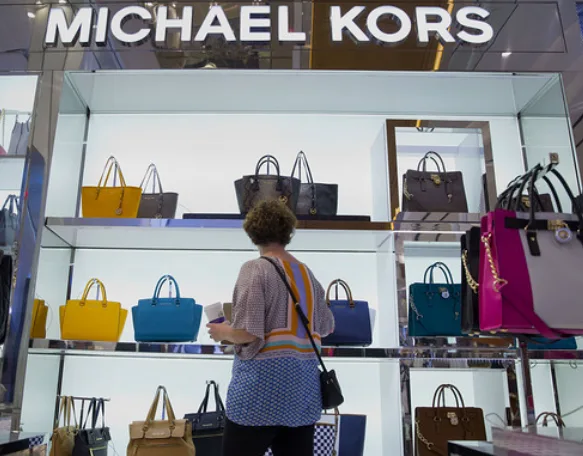
-157-p.jpg)

